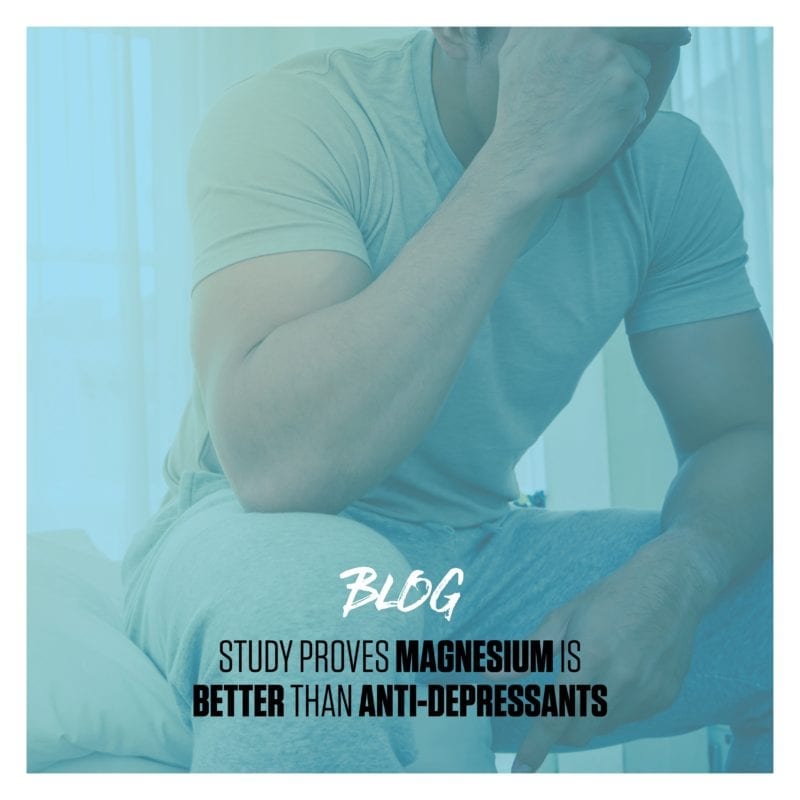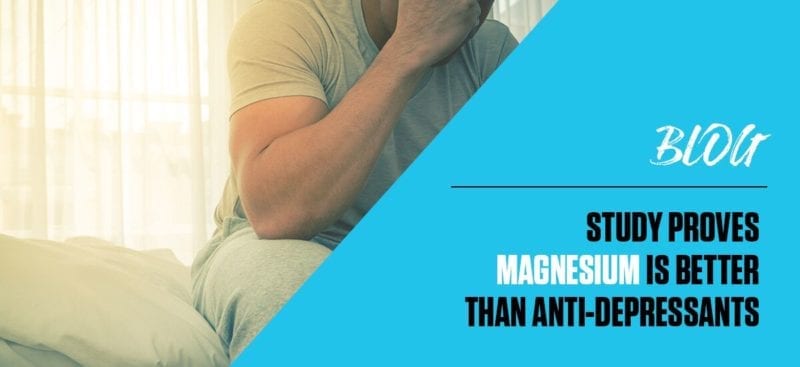News
Study Proves Magnesium Is Better Than Anti-Depressants
Study Proves Magnesium Is Better Than Anti-Depressants
With depression effecting over 350 million people worldwide and the numbers rising quickly the standard of care just isn’t working. In fact, just one serve of 248mg of elemental magnesium per day (Adrenal Switch™ contains 300mg) was shown to outperform the 5 top prescribed anti-depressants.
The study conducted by Dr Emily Tarleton and colleagues at the University of Vermont showed surprising results within just 2 weeks of supplementation.
The researchers at the University of Vermont’s Larner College of Medicine conducted an open-label, randomized cross-over trial involving 126 adults in outpatient primary care clinics.
The study participants, who were currently experiencing mild-to-moderate depression, had a mean age of 52, with 38% male and 62% female.
Participants either received 248 milligrams of elemental magnesium per day over six weeks, or a placebo for six weeks. Depression symptom assessments were conducted on all participants on a bi-weekly basis.
The researchers found that in 112 participants with analysable data (out of 160), consumption of magnesium for six weeks resulted in a clinically significant improvement in measures of depression and anxiety.
In fact, positive effects were shown within two weeks, and the supplementation was well tolerated and similarly effective regardless of age, sex, or use of antidepressants, among other factors.
89% EFFECTIVE:
Over 89% of participants had clinically significant positive results, which is greater than any other pharmaceutical anti-depressant currently on the market.
Pharmaceutical anti-depressants come at a cost financially and physically with many side effects experienced with users. These include but are not limited to…
- Nausea
- Dry Mouth
- Dizziness
- Fatigue
- Weight Gain
- Constipation
- Irritability
- Poor Sleep
- Anxiety
- Loss of Libido
Magnesium on the other hand is an essential mineral involved in over 300 natural biochemical reactions in our body every day. It is important for…
- Improved bowel function
- Energy
- Libido
- Formation of bones and teeth
- Relaxation of blood vessels
- Regulation of blood sugar
- Cardiac health
Furthermore, a good night’s sleep resulted in 3x greater results in depression scores than one of the most popular anti-depressant drugs (Zoloft).
More than 75% of patients diagnosed with clinical depression suffer from sleep deprivation. Reduced sleep time or quality can lead to reduced testosterone. One study published in 2007 showed men who sleep an average of 2-3 hours less than other men of similar age and health had 50% lower levels of circulating testosterone.
This shouldn’t come as a surprise that when testosterone is lower your cortisol (stress hormone) is higher. There is also a direct relationship between lower testosterone in men and women and incidence of depression.
SUMMARY:
- Magnesium works faster and, in more subjects, than anti-depressant drugs.
- Magnesium supports testosterone.
- Magnesium helps you relax and sleep better.
- Quality sleep results in higher testosterone.
- Quality sleep reduces symptoms of depression 3x better than anti-depressant drugs.
Given that magnesium has over 300 benefits to the health and physiology of the human body and is incredibly well tolerated. It might be worth serving yourself up a dose of magnesium (at least 248mg) in the evening and getting a better night’s sleep to feel your very best EVERY DAY!!
GIVIN TO LIVIN®:
Switch Nutrition is committed to supporting and helping people who suffer with depression and anxiety. We have now teamed up with LIVIN® and will be donating $1 from the sale of every ADRENAL SWITCH™. Our highly popular magnesium adrenal support formula has gained global recognition for helping people feel better and the work of LIVIN is helping people feel better also.
Disclaimer: The above article is merely a guide and is in no way a recommendation or a treatment protocol for any health conditions or diseases. You should always consult with a qualified health care provider before changing your supplement, training or nutritional strategy. Supplementation should not be attempted by pregnant or breastfeeding women, anyone on prescription medication or children under the age of 15 unless advised by your qualified health care provider.


